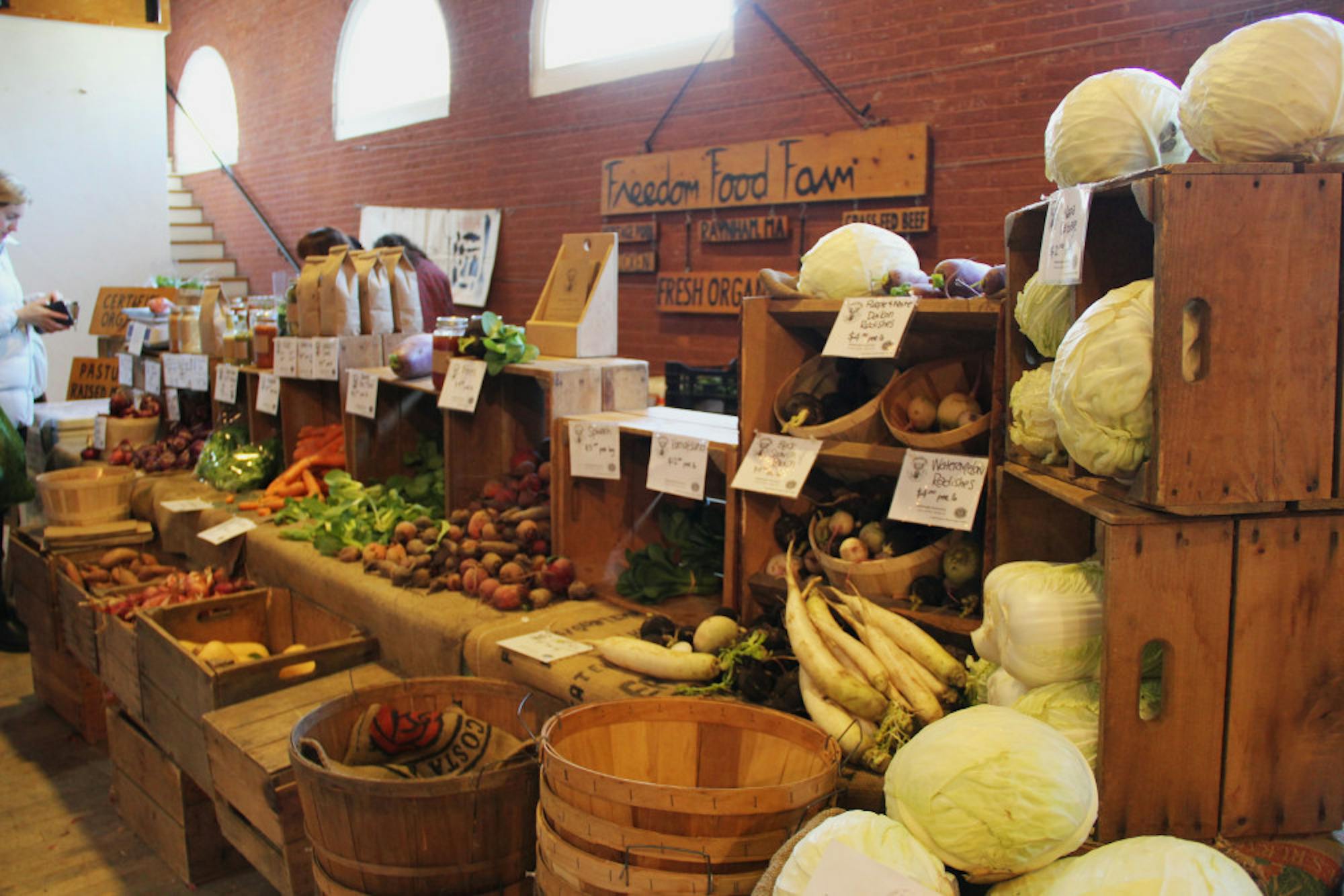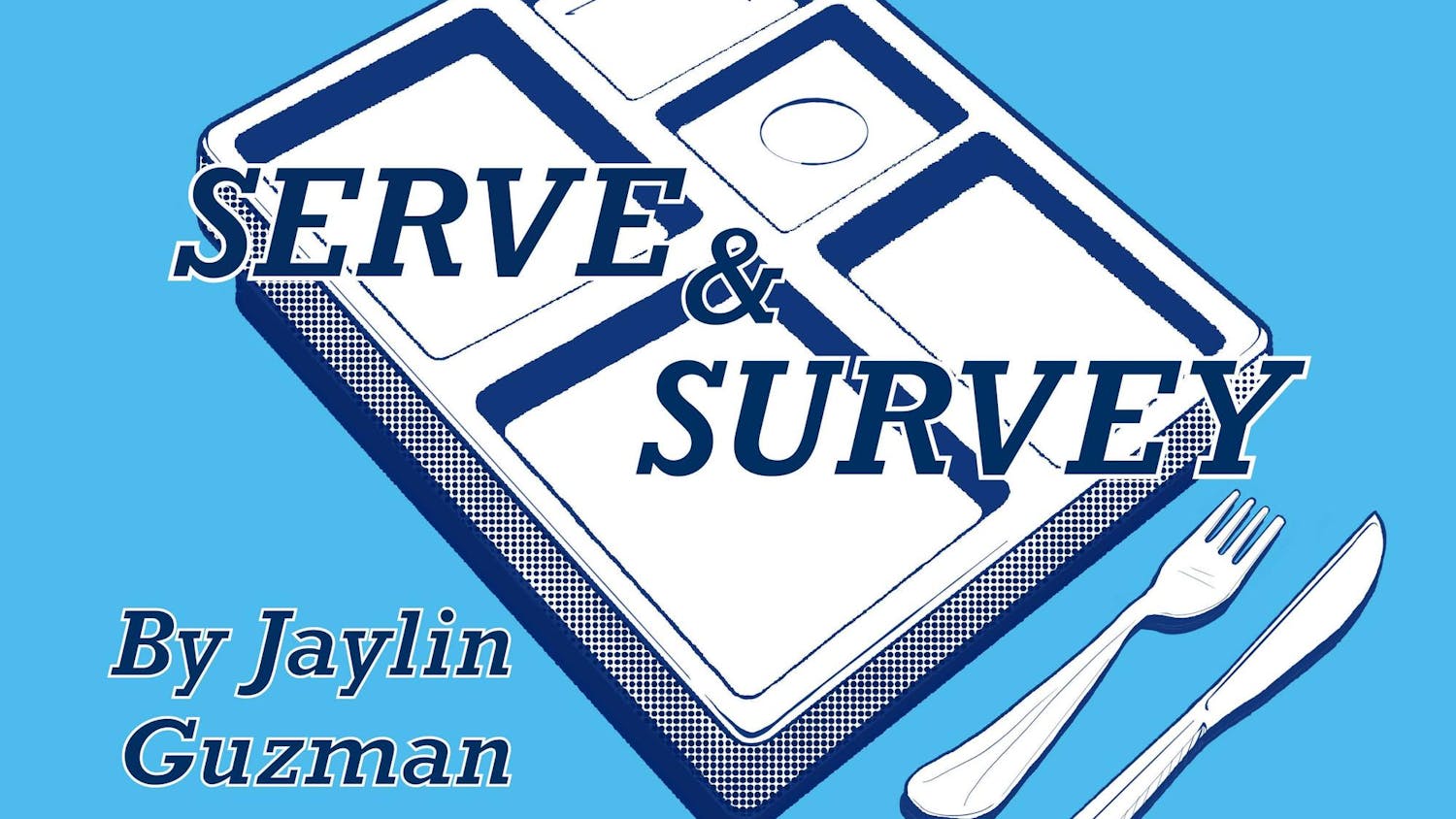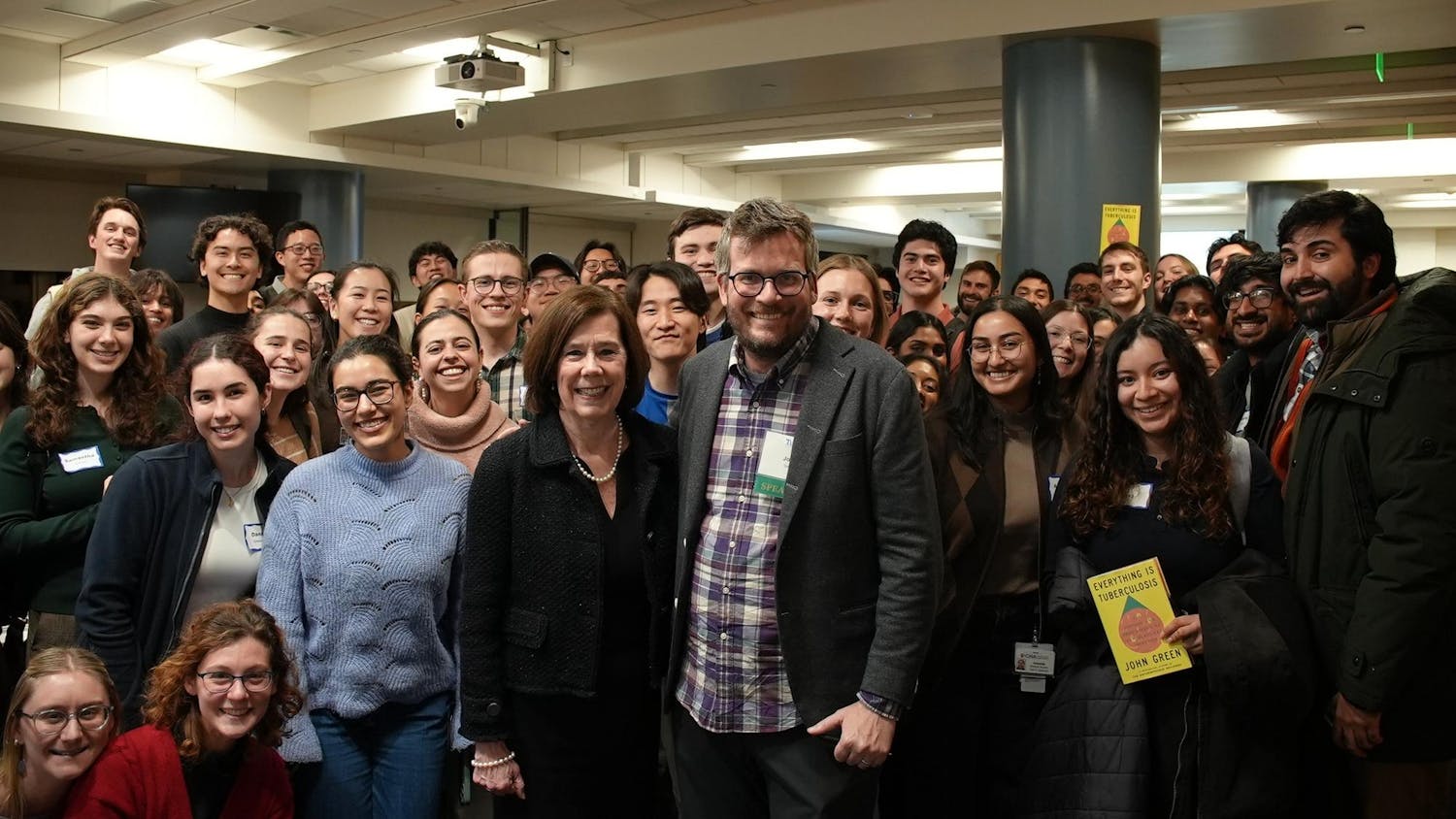Attending the Somerville Winter Farmers Market is like stepping onto the set of "The Good Place" (2016–20). Except it's real. With live music by Joe "3’n1" Pete in the background, a rainbow of colorful produce carefully displayed by farmers and old-fashioned string lights gracing the armory walls, the charm and community atmosphere is undeniable.
The market, which is held every Saturday from 9:30 a.m. to 2 p.m. in the Center for Arts at the Armory, is what Erin Silvia of gluten-free and vegan Piping Plover Baking Company describes as “the best thing you can do all week.”
The long line forming before the doors opened at 9:30 a.m. was an indication of Silvia’s sentiments.
“I go to the farmers market because the food is a much more nutritious, better selection of organic [food], just the herbicides that they’re using now are worse than 30 years ago. I’m really interested in supporting sustainable local farmers,” Norma Wassel, a Cambridge resident who has been attending the market for three years, said.
Wassel also noted that, in comparison to Cambridge farmers markets, the Somerville Winter Farmers Market has more vendors and rotates through specialties, such as new bakeries.
The importance of supporting local businesses is a belief commonly-held by both customers and farmers.
Jesse Docter of Winter Moon Roots grew up on his family farm in Hadley, Mass., and has been working at markets since he was 12. The Winter Moon Roots table was covered in multicolored carrots, radishes and squash.
“You can’t compare the quality, as far as the produce’s freshness, the healthy, organic food and the varieties that you can’t find in grocery stores — just the things that you can do better at a small scale,” Docter said. “Good storage, getting your vegetables after the frost — you’ll taste it.”
Vendors also mentioned that shopping locally not only has health and economic benefits, but also environmental and social ones.
“Shopping locally keeps money in the community,” Chris Haskell of Mycoterra Farm, an organic mushroom farm in the Pioneer Valley, said. “It keeps money inside instead of spending it with Kraft Foods.”
Buying locally can decrease the costs and environmental impact of shipping.
“We only have to drive our food, which is 45 minutes, as opposed to shipping it across the country,” Kelly Phillips of Freedom Food Farm in Raynham, Mass., said.
In contrast, according to the Center for Urban Education about Sustainable Agriculture, it is estimated that meals in the United States travel 1,500 miles to get from farm to plate.
Many farmers and customers appreciate the unique interactions and sense of community built around the farmers market.
“The best part of shopping locally is the community that is built — seeing familiar faces week after week and knowing where your food is coming from,” Kara Dodd, a vendor for Narragansett Creamery and a Somerville Public Schools teacher, said.
Customer Joanna Cendrowski, who has been shopping at the market for three years, agreed.
“I feel like I know the people who I’m buying my foods from and they know me,” Cendrowski said.
James Walsh, of Somerville's own Q's Nuts, echoed this sentiment.
“I love the people,” Walsh said. “Just look around: such an eclectic group of people. You get local people, you get tourists. I deal with people from all over the globe, and I just love it.”
Every vendor interviewed had their own path for coming to the market, but they are all invested in giving back to the community.
“We sell stuff, make money, have profits, but ultimately, it’s all around saving the bees and promoting the species,” Brian Deeley of Beverly Bees said. “We do a lot of outreach and training to both corporate audiences and schools, and this is where my wife and I will come up and do a presentation. We also do a lot of beekeeping lessons and workshops at my farm.”
One of the biggest ways the Somerville Winter Farmers Market has impacted people is through supporting the Supplemental Nutrition Assistance Program(SNAP), rendering the market more accessible to Somerville residents.
In addition, SNAP shoppers who purchase fruits and vegetables at the farmers market can receive financial incentives under the Healthy Incentives Program (HIP). According to WGBH, more than 770,000 people in Massachusetts currently receive SNAP benefits.
“When a SNAP customer is purchasing fresh fruits and vegetables directly from a farmer, they basically get a rebate,” Somerville Winter Farmers Market Manager Lea Ruscio said. “However much money they spend, up to their monthly limit, they will get immediately back on their [SNAP] card.”
The market also runs its own "SNAP match" program. When a SNAP customer spends money on their card, the market will match up to $10 weekly to make their money last longer, according to Ruscio.
“The SNAP match is totally funded by donations and merchandise sales — T-shirts, tote bags, posters,” Ruscio said. “All the proceeds go to the SNAP match and a couple people will donate either here or online to help their neighbors in need.”
Having these programs has proven to be game-changing for both customers and for farmers.
“I come here because they’re one of the only farmers markets during the winter and they accept HIP,” shopper Masoud Arshadi said.
Mike Pauplis from Apex Orchards in Shelburne, Mass., has noticed an increase in his profits and a “drastic” hike change in attendance since the market began accepting HIP.
“HIP has helped us a lot,” Pauplis said. “We’ve seen a bump in sales and there’s a massive influx of people that come in because of the program.”
According to Ruscio, these programs help the farmers as well.
"It’s also great to support people who need the most food assistance, but also helping the farmers as they keep things small, local and quality, but have to compete with a lot of big farming operations out of state,” Ruscio said.
Haskell noted what it is like to see the effects of these programs firsthand.
“As one of the larger HIP farms in the state, I’ve seen the effect of having people come up to me and telling me they’ve never eaten this much produce before,” Haskell said. “These are people that clearly have health conditions and are often times elderly and frail.”
At one point during the market, a bus arrives with elderly people from an adult day health center who are largely speaking languages other than English, filling the farmers market even more.
While the HIP program has been a factor of social change, Haskell believes there is still more to be achieved.
“I wish [HIP] was fully-funded all year. It would help me stabilize my plans ... and then I could go back and expand my reach, without it being cut off every year at a certain time," Haskell said."There’s a pretty big disconnect between the people with six and seven figure salaries, local businesses and people on food stamps.”
Knowledge of the programs is another barrier that exists.
“It’s fantastic to get people, especially those with lower incomes, to eat healthy food and I think we need to spread that message,” Deeley said. “Certain communities know it and have embraced it, and other communities — they have no idea.”
At the end of the day, the Somerville Winter Farmers Market is a place that cultivates a sense of community, purpose and responsibility to help others.
“Know the people that make the food you put into your body, because ultimately, food is medicine,” Silvia said.
Somerville Winter Farmers Market cultivates community, change

The Freedom Food Farm stand at the Somerville Winter Farmers Market is pictured on Feb. 8.





